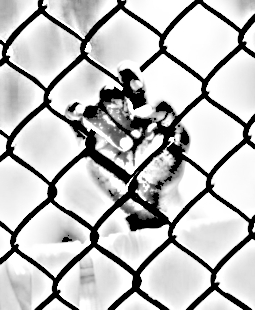Freedom bill proposed
 Journalist Peter Greste, an advocate for press freedom, says legal actions against public sector whistleblowers could harm integrity.
Journalist Peter Greste, an advocate for press freedom, says legal actions against public sector whistleblowers could harm integrity.
The Commonwealth continues to pursue charges against whistleblowers Richard Boyle and David McBride, and Mr Greste says this could deter prospective informants from coming forward.
Speaking at the National Press Club, Greste emphasised the significance of these cases, asserting that civil servants contemplating exposing wrongdoing might be deterred.
Greste pointed out the contradictory nature of current developments. While the Attorney General's office has made promising statements and technical changes, the plight of McBride and Boyle - which includes the loss of their careers, financial turmoil, emotional stress, and impending court trials - paints a starkly different picture.
Greste speculated that these two cases might undermine the Attorney General's efforts to support whistleblowers.
David McBride faces prosecution for revealing war crimes committed by Australian soldiers in Afghanistan to the ABC, while Richard Boyle potentially faces imprisonment for disclosing aggressive debt collection practices within the Australian Taxation Office.
At the same event, Facebook whistleblower Frances Haugen voiced concerns about the growing opacity of artificial intelligence (AI) systems.
She argued that as AI becomes increasingly integral to our economy, transparency must be ensured.
Haugen stressed the necessity of legislation to prevent the recurrence of the mistakes made in the realm of social media and protect whistleblowers.
Haugen also highlighted the potential for Australia to collaborate with countries like Singapore to establish consistent rules on transparency and resource sharing in Southeast Asia.
Peter Greste, who endured 400 days of imprisonment in an Egyptian jail on terrorism charges, urged for media freedom to be enshrined in Australia's constitution.
However, he acknowledged that this may be a challenging endeavour, given public sentiment about journalists.
He likened the likelihood of achieving media freedom in the constitution to “getting them to vote for cane toads”.
Greste called for the introduction of a Media Freedom Act to provide journalists and whistleblowers with enhanced protections.
He urged the Attorney General to drop the prosecutions against Boyle and McBride, highlighting the personal and professional toll these cases have taken on them and the potential chilling effect on whistleblowers.
The proposed Media Freedom Act would require federal parliament to consider media freedom when passing new legislation, recognising the role of journalists and whistleblowers in any democracy.
Greste underscored that the whistleblowers and journalists in these cases served the public interest and did not compromise national security.







 Print
Print